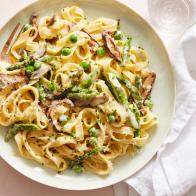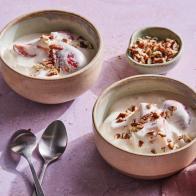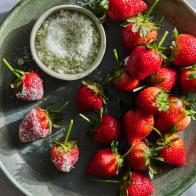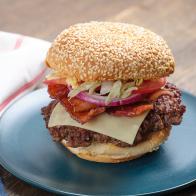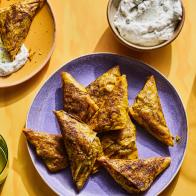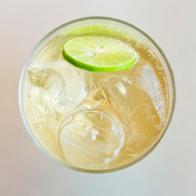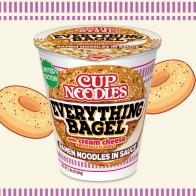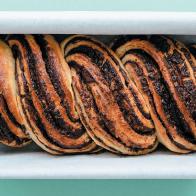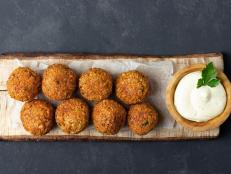The Truth Behind These Super-Common Sports Nutrition Myths
Is pickle juice really a muscle cramp cure-all?

jacoblund/iStock
Everyone from professional athletes to occassional gym-goers are considering the latest sports nutrition methods to get that performance edge. The problem is, these crazy-popular strategies aren't always all they're cracked up to be. We asked our nutritionist to break down common sports nutrition trends to find out which ones really work and which ones should be sidelined.

Antonuk/iStock
Myth: Pickle Juice Cures Muscle Cramps
In recent weeks, closet pickle juice sippers are coming out of the shadows and proudly chugging day-glow pickle juice on social media. According to the rumor mill, pickle juice helps exercise induced muscle cramping, which can be caused by a variety of factors including lack of fluids, electrolyte depletion and under-fueling (not eating enough calories). Some athletes have reported that tipping back some pickle juice after cramps start helps to shut down and shorten the duration of symptoms, but according to research, this relief may be more about the jolt of acidity from acetic acid in the pickle juice rather than the electrolytes floating in that salty green liquid. Plus, small studies from 2009 and 2014 found no big changes in electrolyte blood concentrations from drinking pickle juice which may mean it won’t give the boost you're expecting.
Bottom line: Pickle juice may be worth trying for those that cramp often, but those prone to heartburn or suffering from hypertension may find this can do more harm than good! Traditional forms of replenishment such as sports drinks, high sodium and high potassium foods should remain go-to sources of recovery. There’s no need to down pickle juice if you find it gross or hard to swallow (literally).

a_namenko/iStock
Myth: You're Not Eating Enough Protein
Gram for gram, most folks tend to take in plenty of protein per day. Though the type of exercise and level of intensity may dictate a need to increase that protein dosage. On average, an athletic 150-pound person requires about 70 grams of protein a day which can be achieved by eating 2 eggs for breakfast, 6 ounces of chicken with lunch or dinner and 6 ounces of Greek yogurt as a snack. For best results, protein intake should be spread out throughout the entire day and should come from sources with a wide range of amino acids (the building blocks of proteins in the body). Protein sources with all those amino acids can be found in animal-based foods (eggs, dairy, meat) as well as plant-based foods like quinoa, soy, or combinations of grains and legumes such as rice and beans.
Bottom line: Aim for high-quality protein and be sure to spread your intake throughout the day to maximize your performance.

ThitareeSarmkasat/iStock
Myth: Go Keto
High fat, low carb, Paleo- and Ketogenic-style diets continue to flood the news cycle but don’t believe the hype surrounding these fads. Aside from being incredibly hard to adhere to, these programs can also be dangerous when followed long term. Excluding food groups means cutting back carbs, vitamins and minerals, which can lead to nutrient deficiencies, illness and injury.
Bottom Line: Fad diets like Keto could lead to decreased performance.

cmannphoto/iStock
Myth: Coconut Water Is Better Than Sports Drinks
Bottled versions of coconut water (the clear liquid from the inside of coconuts) have become a fridge staple in many households. They're touted as a natural alternative to sports drinks, but there’s more to the story. Like sports drinks, coconut water can provide some fluid and carbs, but the electrolyte composition is very different. Sports drinks are modeled after sweat and contain more sodium than potassium, but coconut water contains little sodium and 4 to 5 times more potassium.
Bottom Line: Since sweat losses typically yield more sodium lost than potassium, some sweaters may want to reach for a sports drink with more salt instead of coconut water.

GeorgeRudy/iStock
Myth: You Need More BCAAs
Branched chain amino acids (BCAAs) are the specific group of amino acids vital to muscle building. This is why you can find them added to a staggering number of pills, powders and other products marketed to athletes and fitness enthusiasts. However, a study from 2017 found that these BCAA supplements fall short in their ability to build muscle. The truth is, better BCAAs (that actually help build muscle) can be found in large amounts in foods like eggs, chicken, beef and cottage cheese.
Bottom Line: More is not better. Eat your BCAAs through healthy food instead of reaching for supplements.
Related Links:
